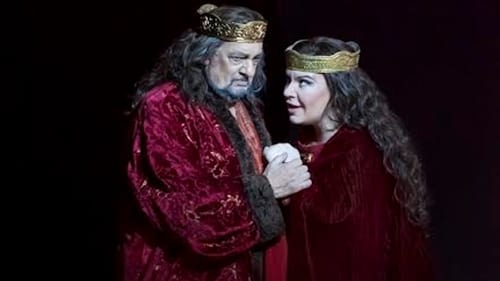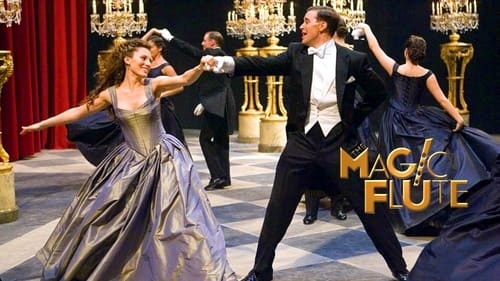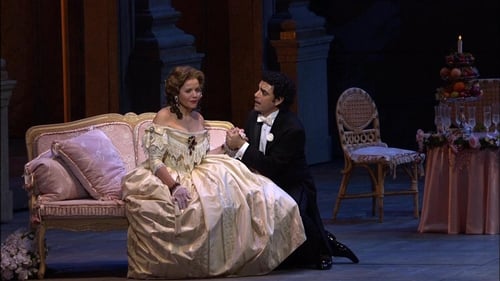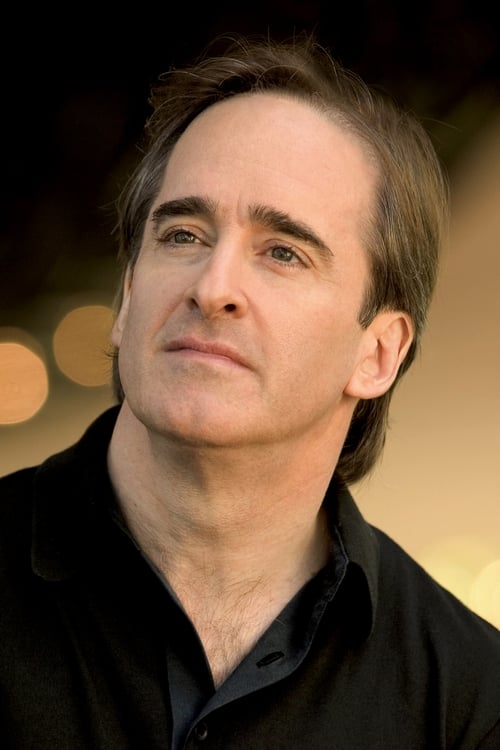James Conlon
Рождение : 1950-03-18,
История
James Conlon is an American conductor. He made his debut with the New York Philharmonic in 1974 and has conducted virtually every major American and European symphony orchestra. Throughout his career, Conlon has held the positions of Music Director of the Rotterdam Philharmonic Orchestra (1983-1991), General Music Director of the City of Cologne Germany (1989-2003), Principal Conductor of the Paris Opera (1995-2004), Music Director of the Los Angeles Opera (2006), and Principal Conductor of the RAI National Symphony Orchestra (2016).

Conductor
LA Opera proudly presents The Anonymous Lover (L'Amant Anonyme), an unjustly neglected 1780 chamber opera by Joseph Bologne, Chevalier de Saint-Georges, a pioneering Black composer who was a contemporary of Mozart. The comic romance tells the story of Léontine, a beautiful young widow who has become disillusioned with love. Much to her surprise, she receives a steady stream of letters and gifts from an unknown man professing his undying passion. This amuses her friend Valcour, who also claims to have no interest in romance. But now, after hiding his true feelings for years, Valcour works up the courage to reveal that he himself is the devoted secret admirer. Will his (inevitably awkward) confession sway a woman sworn to resist all affairs of the heart?

Conductor

Protagonist
The Italian Character: a film within music and about music. The Italian character is the story of one of the most renowned orchestras in the world, enriched by archive material of the last thirty years about the great conductors who have been performing on the most famous rostrum in Rome.

Conductor
At first glance, the title of Shostakovich’s opera seems to speak for itself: Katherina, neglected and unhappy in her marriage, commits the most heinous crime just like the Shakespearian Lady Macbeth. But Nikolai Leskov’s short novel, which portrays Katherina as a monster, was only the starting point for Shostakovich to elicit understanding for an oppressed woman whose pursuit for self-determination is suppressed by society. Through combining satiric, grotesque and tragic elements in his music, Shostakovich succeeds in striking the balance between repulsion at Katherina’s immoral acts and sympathy for her. Violence, eroticism and the paralysing boredom of Russian society in the 19th century are the founding elements of this composition. The choir and orchestra of the Maggio Musicale Fiorentino conducted by James Conlon accompany tremendous soloists such as Jeanne-Michèle Charbonnet, Vladimir Vaneev and Vsevolod Grivnov in the original language in this live recording.

Conductor

Sabastro's Captain
Действие перенесено во времена Первой мировой войны, вместо змеи в начале «Волшебной флейты» главного героя преследует слезоточивый газ, а Королева Ночи впервые появляется в кадре на танке.

Conductor
Действие перенесено во времена Первой мировой войны, вместо змеи в начале «Волшебной флейты» главного героя преследует слезоточивый газ, а Королева Ночи впервые появляется в кадре на танке.

Music Director
Действие перенесено во времена Первой мировой войны, вместо змеи в начале «Волшебной флейты» главного героя преследует слезоточивый газ, а Королева Ночи впервые появляется в кадре на танке.

Conductor
This superb 2006 production of the Los Angeles Opera's La Traviata stars Renée Fleming, who joins the ranks of the elite handful of sopranos whose vocal and acting talents make their portrayals memorable. Her Violetta Valéry is a vulnerable figure torn between self-indulgence and love, sacrificing personal happiness to become a victim of the social mores of mid-19th-century bourgeois France. Fleming's acting captures the complexity of the character and her vocalism is flawless. She negotiates the wild coloratura of Act One with aplomb, and is stunning in the lyric passages that pervade the opera, and touching in her scenes with her lover, Alfredo, and his father. Her singing is free of the mannerisms that have sometimes crept into her work and at the same time she brings countless personal touches to the role, phrasing and verbal emphases that shed fresh light on the character.

Conductor

Renee Fleming stars in Dvorak's three-act opera based on two fairy-tales which tells the story of a water-nymph called Rusalka (Fleming), who wishes she was human, after falling in love with a mortal.

Conductor
Paris Opera, October 1996. New production Jérôme Savary

Conductor
Live performance from Cologne Opera. Conlon conducts a skittishly dynamic performance of Don Giovanni. He relies on Thomas Allen’s tough Don to give the work much of its dark menace and on Holle’s terrifying Commendatore to provide the moral outrage – his job is to keep things moving, and he does. The exteriors – blank city spaces reminiscent of the paintings of Giorgio De Chirico – and moodily claustrophobic interiors mirror effectively the anguish of the orphaned Anna and the abandoned Elvira; this is a performance in which the two women victims of the Don function effectively as correctives to his libertine charm. Andrea Rost as Zerlina brings real delicacy to her role, reminding us that “La ci darem la mano” is a duet about her flirtation with Don Giovanni and not just a famous stand-alone moment. This is an admirable presentation of a fine performance.

A stellar cast brings Puccini’s spellbinding opera to life, seizing every opportunity to thrill the audience. Luciano Pavarotti is Cavaradossi, the painter and political revolutionary in love with the beautiful and famous singer Tosca (the riveting Shirley Verrett). Rome’s diabolical chief of police, Baron Scarpia (Cornell MacNeil), wants Tosca for himself—but he underestimates the fury of a woman in love. With torture, murder, and a suicide in its final moments, Tosca packs more dramatic punches than most other operas—and this classic telecast captures them all. James Conlon conducts in a production by the incomparable Tito Gobbi, one of the great Scarpias of the 20th century.

Conductor
A stellar cast brings Puccini’s spellbinding opera to life, seizing every opportunity to thrill the audience. Luciano Pavarotti is Cavaradossi, the painter and political revolutionary in love with the beautiful and famous singer Tosca (the riveting Shirley Verrett). Rome’s diabolical chief of police, Baron Scarpia (Cornell MacNeil), wants Tosca for himself—but he underestimates the fury of a woman in love. With torture, murder, and a suicide in its final moments, Tosca packs more dramatic punches than most other operas—and this classic telecast captures them all. James Conlon conducts in a production by the incomparable Tito Gobbi, one of the great Scarpias of the 20th century.






